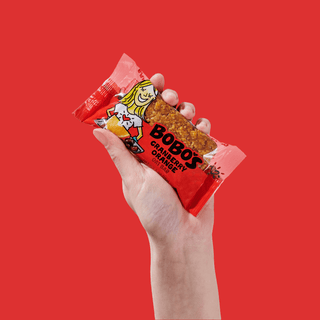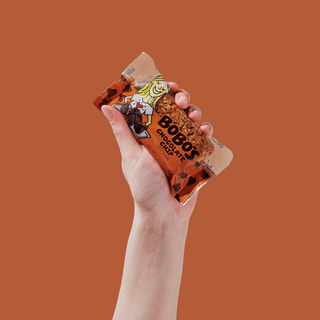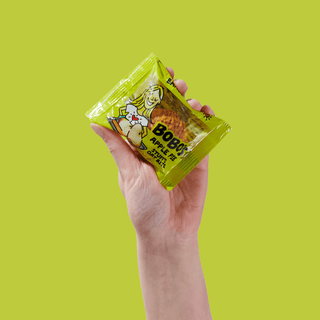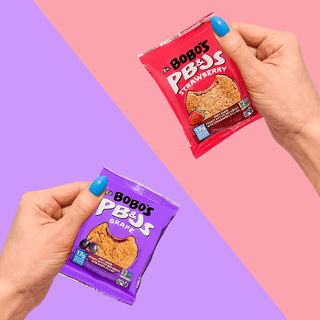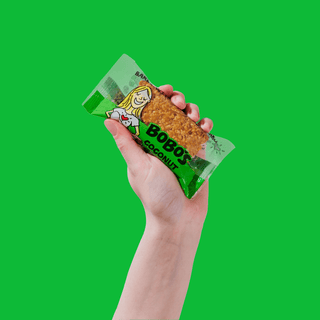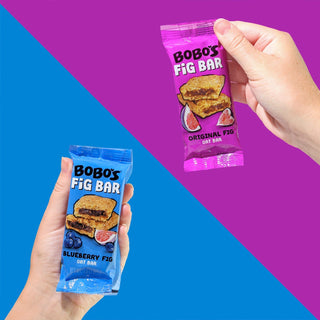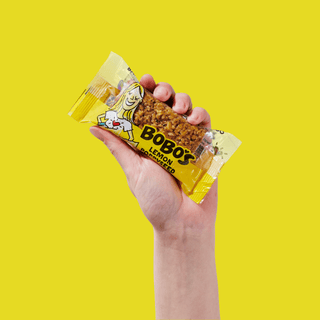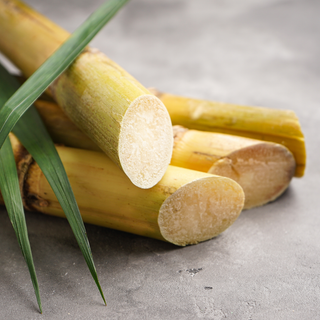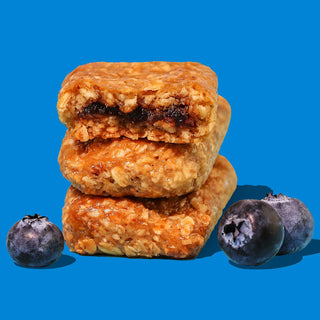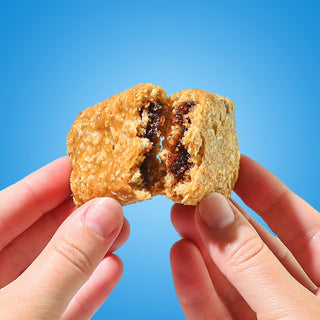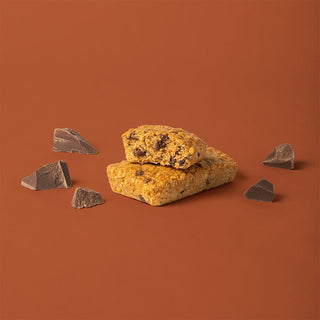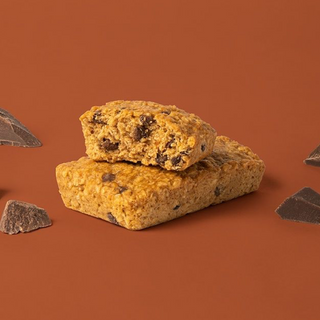Made with:
By Emma Caplan Fisher
Sugar is in much of the food that we eat, but we know, like many other things, it's best consumed in moderation. So, here at Bobo's, we keep that in mind, ensuring it's used in the best way for our health, no matter what we're cooking up in the kitchen.
For us, what this means is to use precisely the right amount of the right type of sugar in any and all products we make. From day one, we've found that to be vegan, non-GMO whole cane sugar — the main reason being that most granulated sugars aren't vegan since they're purified with bone char. So, this is the type of sugar we use in our oat bars, fig bars, oat bites, and everything in between, each and every time, no questions asked.
Keep reading to learn more about whole cane sugar benefits, how this sugar type compares to other common sugars, why it aligns with our values, and how you can easily incorporate it into your everyday cooking and baking.
What is Whole Cane Sugar?
Cane sugar is made from sugarcane, a tropical grass that's cultivated worldwide, particularly in Southeast Asia and India. Sugarcane juice and medicinal products are also produced from sugarcane. Cane sugar tastes similar to and has identical sucrose molecules as its granulated counterpart (which can be made from sugarcane or sugar beets).
Since cane sugar is minimally processed, it carries burnt, bitter, fruity, and vegetal notes. The refining process involves molasses and since this sugar is less processed than granulated sugar, its flavor is retained.
Like many other sugars, cane sugar is not a good source of vitamins or minerals. One teaspoon of unrefined cane sugar offers about 16 calories, 4 grams of carbohydrates, and zero protein, fiber, fat, sodium, and cholesterol. However, there are benefits to cane sugar over other types of sugar, which we'll explain next.
Benefits of Whole Cane Sugar
Like any added sugar, cane sugar can contribute to negative health effects like weight gain, heart disease, and type 2 diabetes. And when it comes to natural sugar vs added sugar, we know that natural sugars, like cane sugar or those from fruit, contain calories with few nutrients.
That being said, while more research is needed, some have found these potential whole cane sugar benefits when consuming it in moderation.
Helpful in medical treatments. Traditional Southeast Asian medicine uses sugarcane juice to treat inflammation, hemorrhage (bleeding), jaundice, and urinary tract issues.
A source of antioxidants. Sugarcane contains antioxidants that help combat free radicals (molecules that cause cell damage) which can exacerbate medical problems like malaria, diabetes, skin cancer, and myocardial infarction (heart attack).
Aids in retention of vitamins and minerals. A preliminary study found that those with diabetes who consumed sugarcane juice instead of refined sugar had higher levels of chromium (a mineral thought to help with blood sugar regulation).
Whole Cane Sugar vs. Other Sugars
As you're deciding which type of sugar to use, this comparison of whole cane sugar with other common sugars in terms of taste, nutritional value, and processing, can help.
Cane sugar
Taste: Same sweetness as white and other refined sugars but a bit smokier and richer; mild molasses, sour, and earthy flavor
Nutritional value: Made from sucrose, fructose, and glucose; contains several amino acids that help with fat burning and muscle growth (like pipecolic acid, tryptophan, arginine, and methionine), minerals, vitamins including calcium, magnesium, potassium, iron, manganese, polyphenols (phytonutrients), and antioxidants that may help treat oxidative damage
Processing: Minimal (results in grainier texture than refined, inorganic sugars)
White sugar
Taste: Sweet, light
Nutritional value: Made from sucrose; almost zero vitamins, minerals, fats, proteins, and fibers; About 16 calories per teaspoon; may contain chemicals from the refining process like (sulfur dioxide, phosphoric acid, and lime)
Processing: Juice from sugarcane or sugar beet plants is extracted, purified, and heated to create molasses (syrup), which goes through a machine (centrifuge) to separate crystallized sugar from the syrup; any excess molasses is removed through purifying; smaller crystals are made in further processing and filtration
Brown sugar
Taste: Sweet, rich, nutty, toffee
Nutritional value: Made of white sugar and molasses; very little traces of calcium, iron, and potassium; about 15 calories per teaspoon
Processing: Juice from sugarcane or sugar beet plants is extracted, purified, and heated to create molasses (syrup); regular brown sugar goes through a machine (centrifuge) to separate crystallized sugar from the syrup, and molasses is added back in; whole, unrefined brown sugar requires less processing as it retains some of its natural molasses and color
Honey
Taste: Sweet, varies by nectar, e.g. orange blossom nectar typically produces a lighter color and flavor of honey than wildflower or avocado nectar
Nutritional value: Made of fructose and glucose; 1 tablespoon contains about 61 calories, 17 g of carbohydrates, no fat, and trace amounts of protein and fiber; honey contains health-promoting plant compounds (polyphenols) and minimally processed (particularly dark) types contain antioxidants like flavonoids and phenolic acids
Processing: Bees collect flower nectar, which is broken down into simple sugars within a honeycomb; it evaporates into liquid honey which is harvested and extracted by beekeepers, then strained to remove excess wax and particles
Why Bobo's Chooses Whole Cane Sugar
At Bobo's, we believe in clean, natural, better-for-you vegan ingredients that are top-quality, gluten-free, and verified non-GMO. That means creating wholesome energy from 100% whole-grain oats and natural ingredients.
We only use vegan, non-GMO whole cane sugar. Unlike many granulated sugars which are purified with bone char and are therefore not vegan, the cane sugar we use aligns with our values, centering around quality gluten-free, organic/certified Glyphosate Residue-Free (glyphosate is the world's most used herbicide), non-GMO, vegan, kosher ingredients.
How to Incorporate Whole Cane Sugar into Your Diet
Cane sugar can be used for cooking or baking in any recipe that calls for white granulated sugar, as these sugars perform essentially the same way. Most often, you can substitute white sugar for cane sugar 1-to-1.
Some feel that white sugar caramelizes more easily than cane and that cane sugar has more depth to its flavor than white, but the truth is they're almost identical. That said, because of the larger crystals and stronger flavor of cane sugar, it can impact the flavor and texture of your finished product. For a hint of molasses flavor, cane sugar is a great choice, especially in sweeter baked goods.
Pro tip: While sugar impacts a recipe's sweetness, it also affects flavor, texture, moisture retention, freezing point, color, and shelf life. This means that you shouldn't reduce or remove sugar from a recipe — cane or otherwise — without reformulating the recipe to balance its overall flavor and function.

